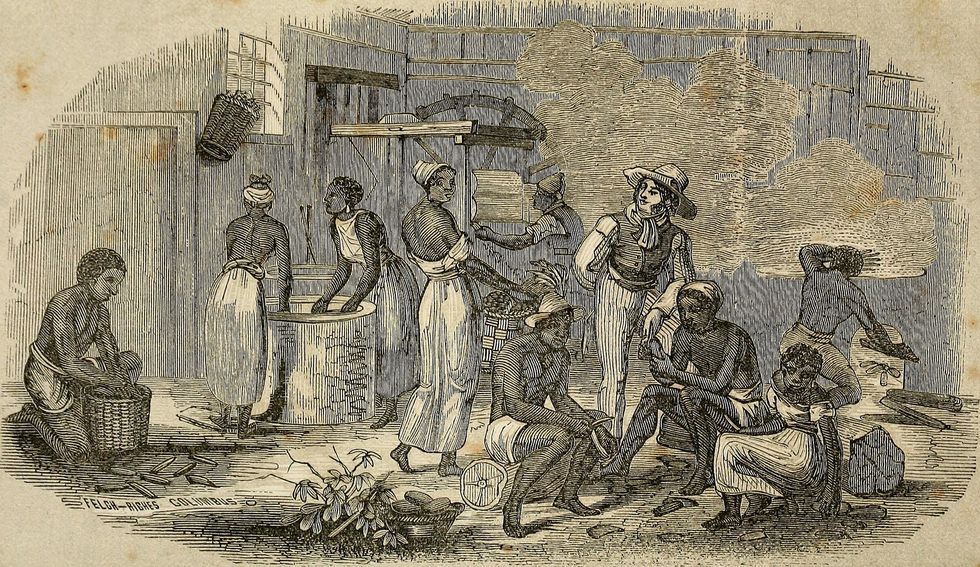“Black men and women did not experience slavery the same way. With the institution, there were two systems [that were both meaningfully interwoven and drastically different] — one for men and one for women. ”
- Ruthe Lewin Winegarten (Black Texas Women “Ch. 2 Slavery” Next to Last Draft)
In the pre-Civil War South, the only protected party in rape trials was the slave owner. Enslaved, in general, and captive women were not subjects of common law, and were thus unprotected against rape. Slave owners could sue a rapist for trespass on his “property” (the violated slave) but could not be sued if he was the aggressor.
Fourteen-year-old Celia, suffered from this lack of protection from the moment she was purchased in Audrain County until her death on the gallows at nineteen-years old. Robert Newsom separated her from the other slaves on his plantation and raped her repeatedly following the death of his wife. Celia begged Newsom to stop his visits to her cabin and even pleaded with his daughters to stop him. After none of this proved effective, Celia took her protection into her own hands and struck him twice with a stick. Although it was a crime to take any woman unlawfully against her will and by force and resistance of such an offense would have been considered a justifiable excuse for a woman to kill a man, however, rape was decriminalized for enslaved women due to their inability to claim the social protections surrounding gender.
The enslaved regained their perceived identity, intent and rationality, only in the context of criminal liability – only as a way to prohibit or punish manifestations of identity. The law's selective recognition of slave person in regard to issues of injury and protection failed to acknowledge the matter of sexual violation, specifically rape, and thereby defined the identity of the slave female by the invulnerability to sexual violation, and the negligibility of her injuries.
For the purpose of this article, consent is defined using Marxist feminist theory which states: consent can be seen as the immaterial inheritance of both classes, much in the way labor power is a possession elaborated by the body of the worker but not isomorphic with that body. One’s consent is as “natural” an inheritance as one’s labor is within the Marxist paradigm. And if the definition of rape relies upon the power to provide consent or exercise will, then how does one understand the sexual violation of the enslaved when that which would constitute evidence of intentionality, and thus evidence of the crime – the state of consent or willingness of the assailed – creates questions surrounding what is considered rape when the legal definition of the enslaved negates the very idea of “reasonable resistance”?
The answer lays in the injury of rape not translating for (and not being categorical inheritance of) Black women in the ways that it does White women – creating another form of violence. It should be noted that this form of violence does not usurp Black women’s consent – it is improper to assume their lack of agency in relation to their body – instead, the violence against Black women is not theorized as violation rendering consent useless and silence common.
It is impossible to undo the violence committed against enslaved women. However, current work with archives perpetuate the social invisibility of these women by seizing their life stories and defining them by the violence and maltreatment they endured instead of understanding them as true human beings that possessed psychological characteristics and developed identities.
Sadiya Hartman describes the archive as a death sentence, a tomb, a display of the violated body that reduces these women to an asterisk in the grand narrative of history. Work should instead aim to analyze the ways in which the experiences of abuse/deprivation were gendered in slave societies and the impact it had on the enslaved in order to write a comprehensive history that acknowledges what Christina Sharpe refers to as the "agent buried underneath.”
The intent of this practice is not to give voice to the enslaved, but rather to imagine what cannot be verified, and to create a culture of understanding and gingerly care with the precarious lives which are visible only in the moment of their disappearance. It is a history of an unrecoverable past and written with (and against) the archive.

















